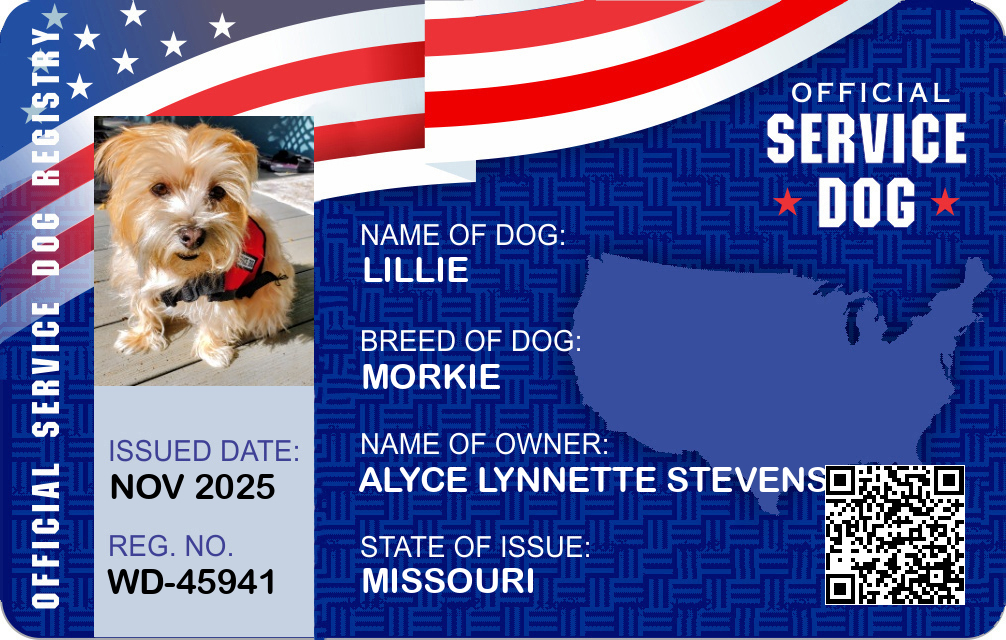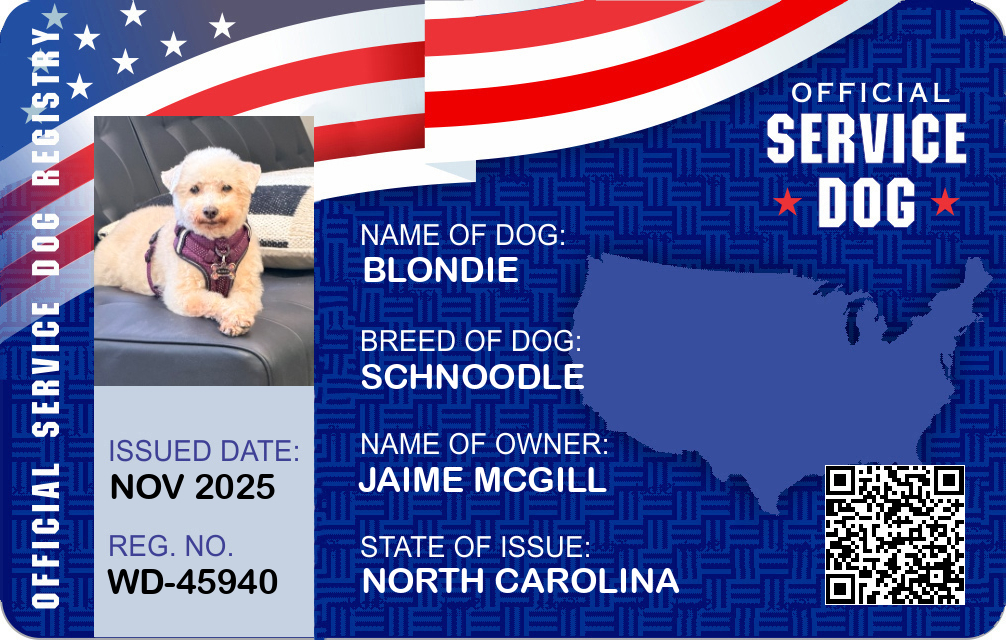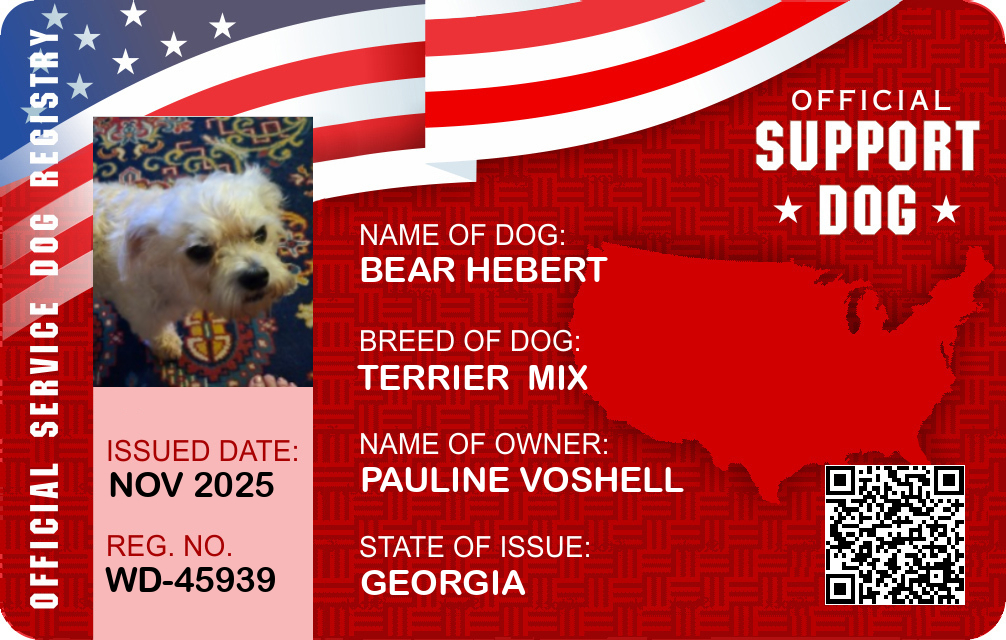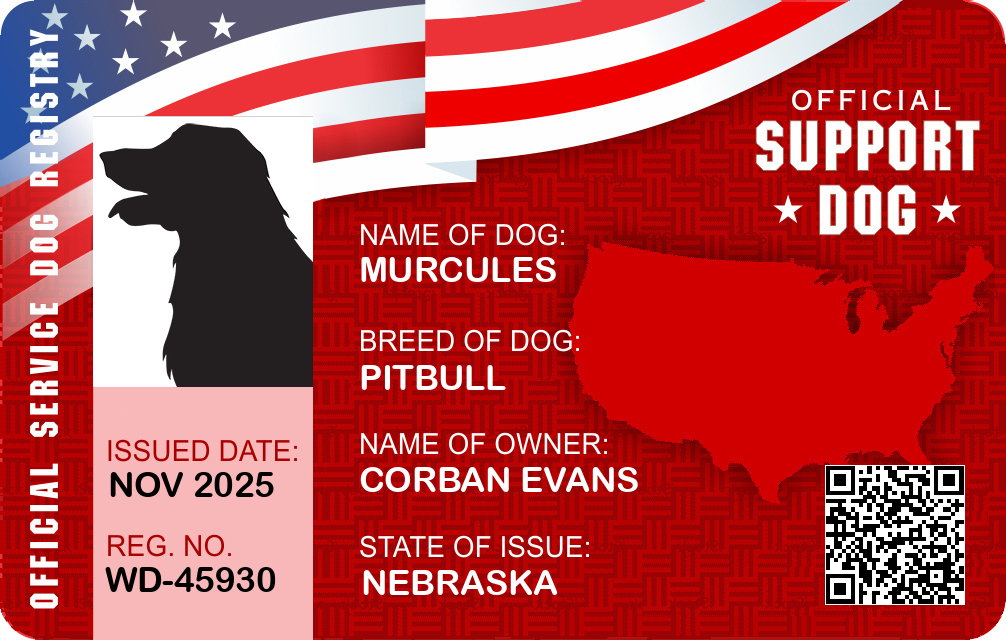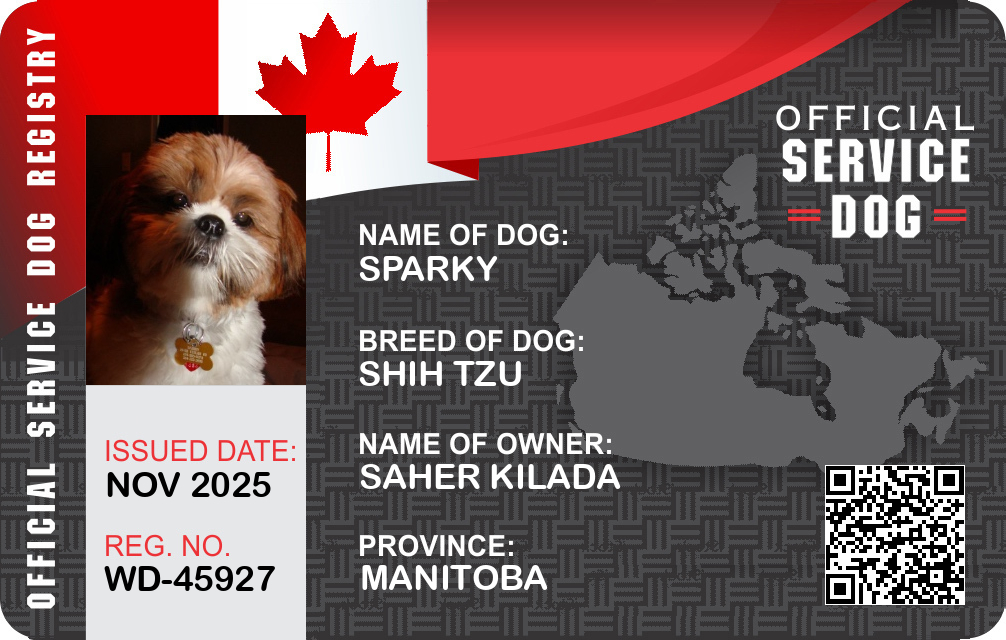Vermont Service Dog Laws
Register Your Dog
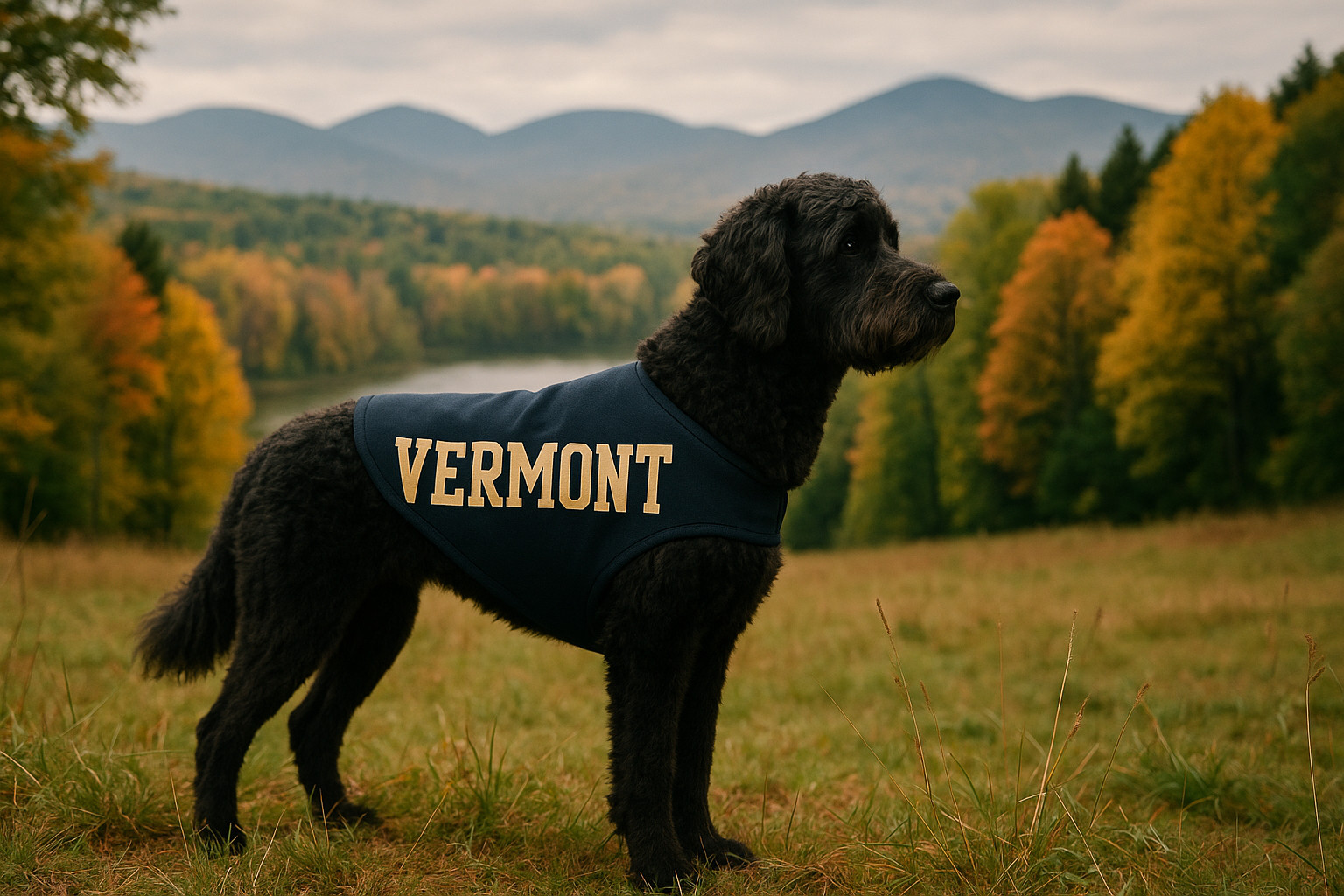
Vermont, like all states in the U.S., has specific laws and guidelines about service dogs. Understanding these regulations is critical for both service dog handlers and those who interact with them, to ensure compliance and promote accessibility. This comprehensive guide breaks down the state-specific legislation and the implications of federal laws in Vermont.
Overview of Service Dog and Legal Definitions in Vermont
What is a Service Dog?
A service dog is defined as a dog specifically trained to perform tasks that mitigate the disability of an individual. In Vermont, as in the rest of the United States, the definition adheres to federal standards set by the Americans with Disabilities Act (ADA). This means the dog must perform tasks directly related to the individual’s disability, including guiding individuals who are blind, alerting individuals who are deaf, pulling a wheelchair, alerting and protecting a person who is having a seizure, or performing other specific tasks.
How Service Dogs Differ from Other Types of Assistance Animals
The primary distinction between service dogs and other assistance animals, such as emotional support animals (ESAs) or therapy animals, lies in their training and the tasks they perform. Service dogs receive specialized training to perform tasks for individuals with disabilities, making them essential for their handlers’ independence and daily function. Emotional support animals, on the other hand, provide comfort through companionship but are not trained to perform specific tasks related to a disability. This distinction is crucial as it influences the rights of access and accommodation these animals are granted under the law.
Key Federal Laws Affecting Service Dogs (e.g., ADA, FHA, ACAA)
Federal laws play a significant role in service dog regulations. The ADA provides the broadest access rights, allowing service dogs to accompany their handlers in most public spaces and places of employment. The Fair Housing Act (FHA) ensures that service animals can live with their handlers in housing situations, regardless of pet policies. The Air Carrier Access Act (ACAA) governs the rights of service dogs in air travel, allowing them to fly with their handlers in the cabin at no extra cost.
State-Specific Service Dog Laws in Vermont
Vermont adheres closely to the federal definitions of a service dog but supplements them with state-specific regulations to support service dog handlers. Vermont law requires that service dogs be given access to public spaces similar to the stipulations in the ADA. Furthermore, individuals with disabilities who use service dogs are generally protected from discrimination in issues of housing, employment, and public accommodation under state laws mirroring federal standards.
Housing Rights and Responsibilities
Under both the ADA and the FHA, service dog handlers in Vermont have the right to live with their service dogs, even where pets are not generally allowed. Both state and federal laws require housing facilities to make reasonable accommodations for individuals with service dogs. This means that landlords cannot impose pet fees or deposits for service animals but can hold tenants liable for any damage caused by the animal.
Public Access and Accommodation
Vermont law ensures service dogs have the right to access public places similar to the rights provided by the ADA. This includes restaurants, stores, hotels, and recreational facilities. These establishments cannot ask for proof of the service dog’s training but may inquire if the animal is a service dog required because of a disability and what tasks the dog has been trained to perform.
Transportation and Travel Rules
Service dogs are granted extensive access in transportation settings in Vermont. Whether using public transit, taxis, or rideshares, service dogs must be accommodated. The ACAA ensures service dogs can travel in the aircraft cabin with their handlers without additional charges. Transportation providers can only query the necessity of the service dog and the tasks it performs.
Employment and Workplace Considerations
The ADA’s requirements are enforced diligently within
workplace environments in Vermont. Employers must accommodate service dogs as they would any reasonable accommodation, provided it does not impose an undue hardship on the operation of the business. Employers may not ask for detailed medical information but are entitled to know about the need for the service dog and its specific functions.Documentation, Requirements, and Processes in Vermont
Service Dog Documentation and Who Can Issue It
Neither the ADA nor Vermont law requires documentation or certification for service dogs. However, handlers may find it beneficial to possess some form of certification or identification to facilitate access. Only authorized trainers or training organizations should issue any voluntary certifications, should they be pursued.
Landlord, Business, and Provider Verification Rules
While documentation is not legally required, businesses and landlords may inquire about the legitimacy of a service dog. Appropriate questions include whether the dog is required because of a disability and what specific tasks it performs. Beyond these inquiries, they may not demand certificates, training logs, or medical records.
Rights, Limitations, and Legal Risks
Rights Service Dog Handlers Have in Vermont
Service dog handlers are entitled to several rights under Vermont and federal law, including:
- Access to public venues without being charged additional fees.
- Housing accommodations without pet deposits.
- Accompanying service dogs on all public transportation.
- Protection from employment discrimination due to their disability and the need for a service animal.
Limits on Service Dog Protections and Common Restrictions
Despite broad access rights, there are limits to service dog protections:
- Service dogs that are disruptive or pose a direct threat to health and safety can be denied access.
- Individuals without valid disabilities cannot claim pet dogs as service animals.
- Businesses can request removal if the dog is not under control of the handler.
Penalties for Fraud or Misrepresentation
Vermont law considers it unlawful to misrepresent an animal as a service animal, and repercussions include fines and potential criminal charges. This is crucial to maintain the integrity of service animal regulations and ensure that those with legitimate needs are given the priority and recognition they deserve.
Practical Guidance for Service Dog Handlers in Vermont
How to Qualify for a Service Dog Legitimately
Qualifying for a service dog involves:
- Having a recognized disability that significantly impairs major life activities.
- Obtaining documentation of disability status from a medical professional.
- Working with a certified dog trainer or agency to train a service dog.
How to Talk to Landlords, Airlines, and Employers
When discussing service dogs with landlords, airlines, or employers:
- Be prepared to explain the tasks your service dog performs.
- Use clear and concise language regarding your need for a service dog.
- Present any voluntary identification or documentation that may ease the process, though it is not legally required.
Summary of Service Dog Laws in Vermont
Key Takeaways for Vermont Service Dog Handlers:
- Service dogs are extensively protected under federal and state laws.
- Handlers are not required to carry certification, but knowing the basic rights allows for easier advocacy.
- Misrepresentation of pets as service dogs carries penalties, including fines.
- Access and reasonable accommodation ensure greater independence for individuals with disabilities.
By adhering to these guidelines and understanding the intersections between state and federal regulations, service dog handlers in Vermont can confidently navigate their rights and responsibilities.



